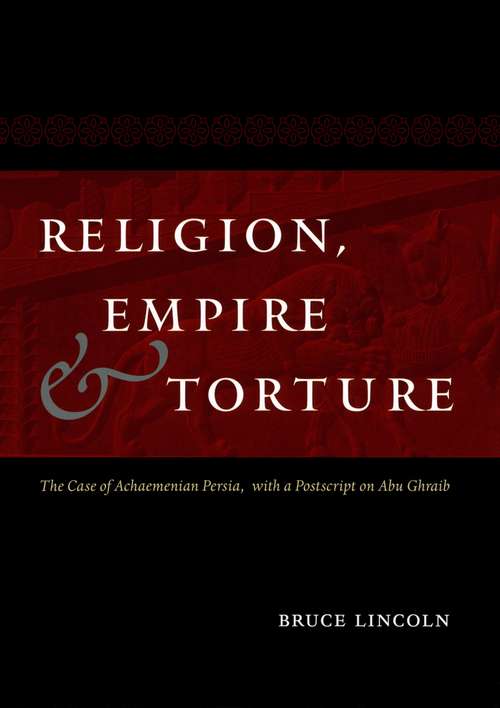Religion, Empire, and Torture: The Case of Achaemenian Persia, with a Postscript on Abu Ghraib
By:
Sign Up Now!
Already a Member? Log In
You must be logged into Bookshare to access this title.
Learn about membership options,
or view our freely available titles.
- Synopsis
- How does religion stimulate and feed imperial ambitions and violence? Recently, this question has acquired new urgency, and in Religion, Empire, and Torture, Bruce Lincoln approaches the problem via a classic but little-studied case: Achaemenian Persia. Lincoln identifies three core components of an imperial theology that have transhistorical and contemporary relevance: dualistic ethics, a theory of divine election, and a sense of salvific mission. Beyond this, he asks, how did the Achaemenians understand their place in the cosmos and their moral status in relation to others? Why did they feel called to intervene in the struggle between good and evil? What was their sense of historic purpose, especially their desire to restore lost paradise? And how did this lead them to deal with enemies and critics as imperial power ran its course? Lincoln shows how these religious ideas shaped Achaemenian practice and brought the Persians unprecedented wealth, power, and territory, but also produced unmanageable contradictions, as in a large case of torture discussed in the book's final chapter. Close study of that episode brings Lincoln back to the present with a postscript that provides a searing and utterly novel perspective on the photographs from Abu Ghraib.
- Copyright:
- 2007
Book Details
- Book Quality:
- Excellent
- Book Size:
- 192 Pages
- ISBN-13:
- 9780226481968
- Publisher:
- The University of Chicago Press
- Date of Addition:
- 05/19/25
- Copyrighted By:
- The University of Chicago
- Adult content:
- No
- Language:
- English
- Has Image Descriptions:
- No
- Categories:
- History, Nonfiction, Politics and Government
- Submitted By:
- Worth Trust
- Proofread By:
- Worth Trust
- Usage Restrictions:
- This is a copyrighted book.
